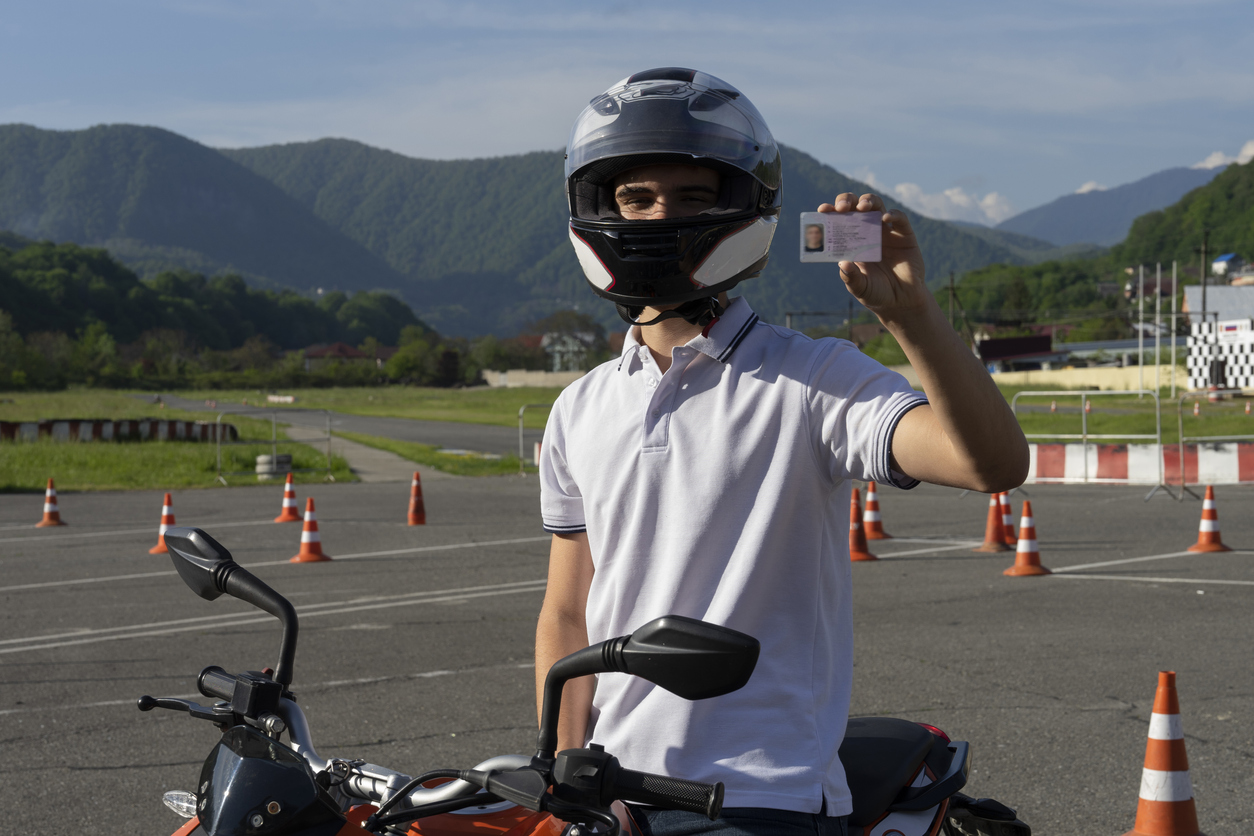Ryan Zavodnick | April 19, 2023 | Pennsylvania Law

Motorcycles offer riders across Pennsylvania a thrilling experience; for many enthusiasts, there is nothing quite like the freedom that comes with hitting the open road. However, motorcycles are notoriously dangerous vehicles, and engaging in traffic safety practices is vital. Motorcycle riders must adhere to strict licensing laws and regulations to legally operate a motorcycle in Pennsylvania.
Types of Motorcycle Licenses in Pennsylvania
In Pennsylvania, the Department of Transportation (PennDOT) issues two main types of motorcycle licenses:
- Class M learner’s permit
- Class M License
The Class M learner’s permit has certain restrictions, especially for those riders who are under the age of 18.
Class M License
A Class M License allows riders 16 and older to operate any motorcycle with an engine displacement greater than 50cc. Applicants for a Class M License must pass a written knowledge test, obtain a motorcycle learner’s permit, and pass a motorcycle road test conducted at a local Pennsylvania DMV office.
Class M Learner’s Permit
A Class M learner’s permit is issued to new riders. It has various restrictions, such as:
- Can only ride between sunrise and sunset
- Cannot carry passengers other than an instructor who is properly licensed
- Unless the rider is licensed to operate another type of motor vehicle, they must be supervised by a properly-licensed rider
Riders under 18 must hold this permit for 6 months and have at least 65 hours of supervised riding before taking the skills test.
5 Steps for Acquiring a Motorcycle License in Pennsylvania
Getting a motorcycle license in PA can be a lengthy process that requires plenty of preparation, studying, and paperwork. Here are the steps on how to get a motorcycle license in PA:
1. Complete the Motorcycle Safety Program (Optional)
Although not mandatory, it is strongly recommended that applicants complete a Pennsylvania Motorcycle Safety Program (PAMSP) course, which provides valuable riding knowledge and skill development. These programs offer excellent safety education and prepare candidates for the written exam.
3. Pass the Written Test
Class M license applicants must first pass a written knowledge test that covers motorcycle-specific traffic laws and safety regulations.
4. Obtain a Motorcycle Learner’s Permit
After passing the written knowledge test, applicants receive a motorcycle learner’s permit, valid for one year.
5. Pass the Motorcycle Road Test
Within the one-year validity of a learner’s permit, applicants must schedule and pass a motorcycle road test, demonstrating their ability to operate a motorcycle safely.
Consequences of Operating a Motorcycle Without a License
Operating a motorcycle without a proper license in Pennsylvania can result in serious legal and safety consequences. Riders caught unlicensed may face fines, suspension, or even imprisonment.
Additionally, riding without a license may lead to higher insurance premiums, denial of insurance coverage, and increased liability in the event of a crash.
Class M Licenses Promote Traffic Safety
Proper motorcycle licensing is crucial in ensuring traffic safety on Pennsylvania’s roads. Acquiring a motorcycle license helps riders develop the knowledge and skills necessary to operate a motorcycle safely, navigate various traffic scenarios, and react appropriately to unforeseen events.
Contact Our Motorcycle Accident Law Firm in Philadelphia Today To Get Help With Your Case
To learn more and get the help you deserve, call Zavodnick & Lasky Personal Injury Lawyers at (215) 875-7030 or contact us online.
You can also visit our law firm at 123 S Broad St #1220, Philadelphia, PA 19109.
